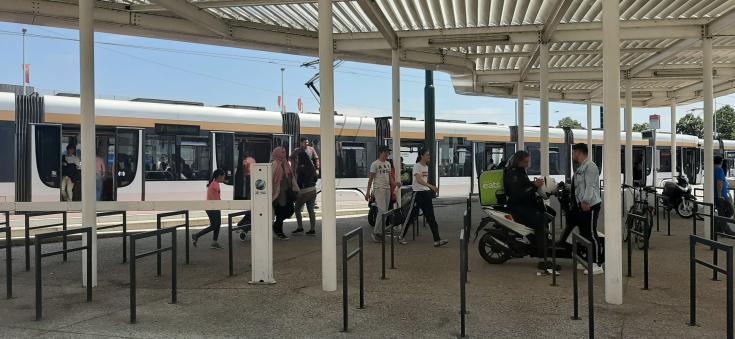Engaging citizens in designing public transport policies

Transport remains a major challenge for Europe’s aim to decarbonise its economy by 2050, being responsible for more than 25% of all carbon emissions. The transition to low-carbon transport needs to be radically sped up, and this means making use of all available innovations, not only new technologies but also new business models and methods for encouraging behaviour change.
This will not be possible without the active involvement of citizens, who need to be empowered to make changes, but also informed about new technologies. Policy makers need to take account of public awareness, knowledge, perceptions, and attitudes, as well as current behaviour in devising effective mobility policy. As such, public authorities are increasingly recognising the need to develop participatory processes that can involve citizens in decision-making processes, to ensure their thoughts and needs are taken account of.
Participatory Planning and Citizen Engagement
Participatory planning approaches bring multiple benefits for policy makers, including bringing in multiple viewpoints – the views of citizens will vary by factors such as age, gender or physical ability. These factors need to be taken into account to bring everyone on board. Discussions around transport can often focus on technical and economic aspects – such participatory discussions can also steer considerations towards the quality of life, sustainability, comfort, and accessibility.
“The PE4Trans partnership noted the challenge of engaging stakeholders and citizens in policy dialogue with the view to change behaviour,” said Kamila Dobek, of the Poznan Science and Technology Park, the project’s Lead Partner. “We realised that a more efficient and durable impact of policy interventions could be achieved through citizen engagement and dialogue to ensure we answered citizen concerns and motivations.”
PE4Trans implemented Citizens Panels in its partner regions to collaborate in defining their Action Plans. Each partner established a ‘Citizen Panel on Sustainable Mobility’ by launching an open call for candidates from the local communities. Based on the responses received, the partners then selected groups of participants, looking to get broad representation from different backgrounds and social groups.
“Citizen engagement panels were focused on elaborating visions of a sustainable future, reflecting multiple aspects like quality of life, environment and security. These defined the final results to be reached via the action plans,” explained Dobek. “In the next step, citizen engagement panels validated the visions in terms of feasibility and importance, and launched a diagnosis of transport behaviours of citizens, acting as ambassadors.”
The partners organised five meetings over the three years of the project with the Citizens Panels, to discuss sustainable mobility. The meetings each covered a different topic, with each meeting building on the previous conclusions
The partners organised five meetings over the three years of the project with the Citizens Panels, to discuss sustainable mobility. The meetings each covered a different topic, with each meeting building on the previous conclusions:
Defining the long-term vision, considering intelligent transport systems, accessibility and inclusiveness, and how to make the city more citizen-focused.
Diagnosing mobility behaviour and habits to find the main areas where interventions are needed, considering public transport, education, awareness raising, cycling infrastructure, pedestrianisation and integrated planning.
Deciding on priorities and profiles for the target groups, including parents and children, people with reduced mobility, teenagers, drivers, and people in the city outskirts without access to public transport.
Co-designing actions and measures, such as education and awareness-raising efforts, demonstration of equipment, public health campaigns, provision of incentives, gamification, and contests.
Validating the prepared Action Plan to get final approval and buy-in for the identified actions.
Lessons for citizen participation
The approach taken by PE4Trans revealed several lessons for other regions looking to engage their own citizens in co-planning. Firstly, citizens are interested in participating, as long as the process is well structured, promoted and explained, and it is clear that their participation is not merely a ‘box-ticking’ consultation. With that said, the outcomes of the panels are not unquestionable, and if deemed unfeasible due to cost or performance by informed experts, the reasons why should be clearly explained.
On the side of the public authority, there is a need to learn new skills and approaches to design such sessions and find working methodologies that work – being neither too technical nor too shallow. The authority needs to also find ways to integrate the thoughts of policy-makers and mobility actors such as public transport companies and private operators to bring them on board.
Citizens also need to be kept informed throughout the process – with long gaps between meetings, it is necessary for information to be shared more consistently to keep people engaged. “Keeping people engaged is always difficult,’ said Dobek.
“Their long-term engagement was maintained through the direct contacts of project partners, interesting topics of the panels and awareness of the importance of the work they were engaged in. In addition, socialisation and creating a joyful ambiance were appreciated, with music and warm-up exercises stimulating the left side of the brain, and coffee, refreshments and snacks available during the workshop.”
The partners noted that the process was very well received, and citizens were happy to give their opinions and shape the action plan. Partners did, though, note the difficulty of maintaining engagement, particularly during COVID-19 when in-person workshops were not possible.
PE4Trans experience reveals that a strong stakeholder engagement strategy is required to ensure that all types of users are covered. The continuous motivation of the stakeholders is challenging, particularly to go in-depth and beyond mere consultation, requiring dedicated resources and a committed team in the public authority, requiring new skills and ways of working.
This requires a significant shift in mindset for many authorities, which are otherwise used to working behind closed doors, including opening themselves up to criticism and being willing to engage citizens and explain decisions.
For more information on PE4Trans, including a selection of good practices on public engagement, visit the project website. For more on the Citizens Panels, see the publication.